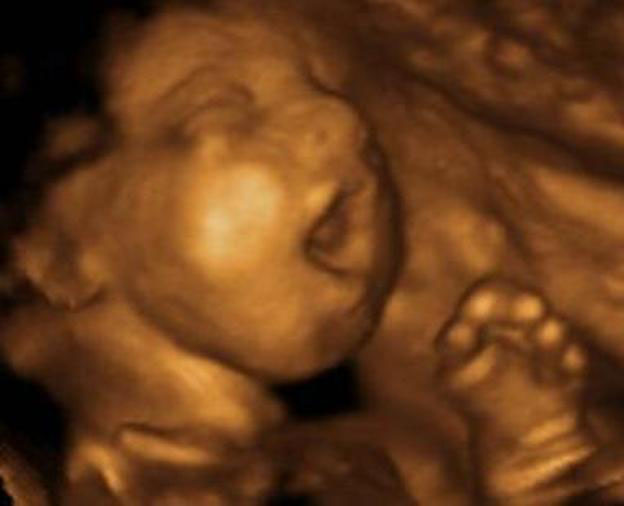Multiple news outlets are reporting on a study showing that information women receive prior to abortion is medically inaccurate. The problem with the study is that it is countered by other evidence and was authored by a pro-abortion ideologue.
An article on NBC News completely avoids giving context to the study, and merely presented it as fact that “researchers said” fetal pain at 20 weeks is not real. The article then lets the study’s author, Cynthia Daniels, claim — unchecked — that, “This study shows the problems that occur when politicians intervene into the doctor-patient relationship” and that “the worst records regarding the medical accuracy of their brochures were North Carolina, Michigan and Kansas.”
The author of the study does not have a background in biology but instead is part of Rutgers University’s Department of Women and Gender Studies. Daniels’ faculty page shows her interests are “Women and Politics” and not fetal development. Her biographical notes describe her work in the “politics of reproduction” and on research projects that “include an analysis of the gender biases of workplace and environmental health and safety standards and reproductive health advice, and an examination of the politics and implementation of laws relating to ‘informed consent’ to abortion.”
CLICK LIKE IF YOU’RE PRO-LIFE!
In the past LifeNews has reported on legitimate medical experts’ views on the fetal pain during abortions, and the conclusion is clear: it exists, and can be extreme.
Dr. David Prentice, a well-known researcher, professor and biochemist, explained, “Young babies still in the womb at 20 weeks after conception, and probably even earlier, do indeed feel pain.” In fact, the pain unborn babies experience may be more extreme than of which adults or newborn babies experience, due to a lack of development of pathways that dull pain.
No matter the pain an unborn child experiences during abortion, ending his or her life is wrong. The evidence is clear: unborn babies do experience pain, and it can be excruciating. Those who are reporting the study as fact would do well to investigate Daniels’ background as a women and gender studies professor, not a biologist or medical doctor.
This January, an extensively researched document on the science of fetal pain was published by the Family Research Council (FRC). The report cites more than 30 scientific studies, testimonies, medical evidence, and real-life experiences in its exposition of the science of fetal pain as the weeks advance post-fertilization.
Below is just a sample of the clear evidence provided by these sources:
- On neurological development: “Pain receptors appear around the mouth 4 to 5 weeks post-fertilization, followed by the development of nerve fibers, which carry stimuli to the brain. Around 6 six weeks post-fertilization, the unborn child first responds to touch. By 18 weeks post-fertilization, pain receptors have appeared throughout the body.” (2003 medical textbook on maternal, fetal, and neonatal physiology)
- On early fetal response to painful stimuli: “The earliest reactions to painful stimuli motor reflexes can be detected at 7.5 weeks of gestations [5.5 weeks post-fertilization].” (2012 medical article)
- On fetal stress responses: “Multiple studies show that ‘the human fetus from 18-20 weeks elaborates pituitary-adrenal, sympatho-adrenal, and circulatory stress responses to physical insults.’” (2013 expert testimony before Congress of Dr. Maureen Condic, Director of Human Embryology instruction for the School of Medicine at the University of Utah)
- On fetal experience of pain being more intense than in adults: “Mechanisms that inhibit or moderate the experience of pain do not begin to develop until 32 to 34 weeks post-fertilization. Any pain the unborn child experiences before these pain inhibitors are in place is likely more intense than the pain an older infant or adult experiences when subjected to similar types of injury.” (2004 expert testimony before Congress of Dr. Kanwaljeet “Sunny” Anand)








